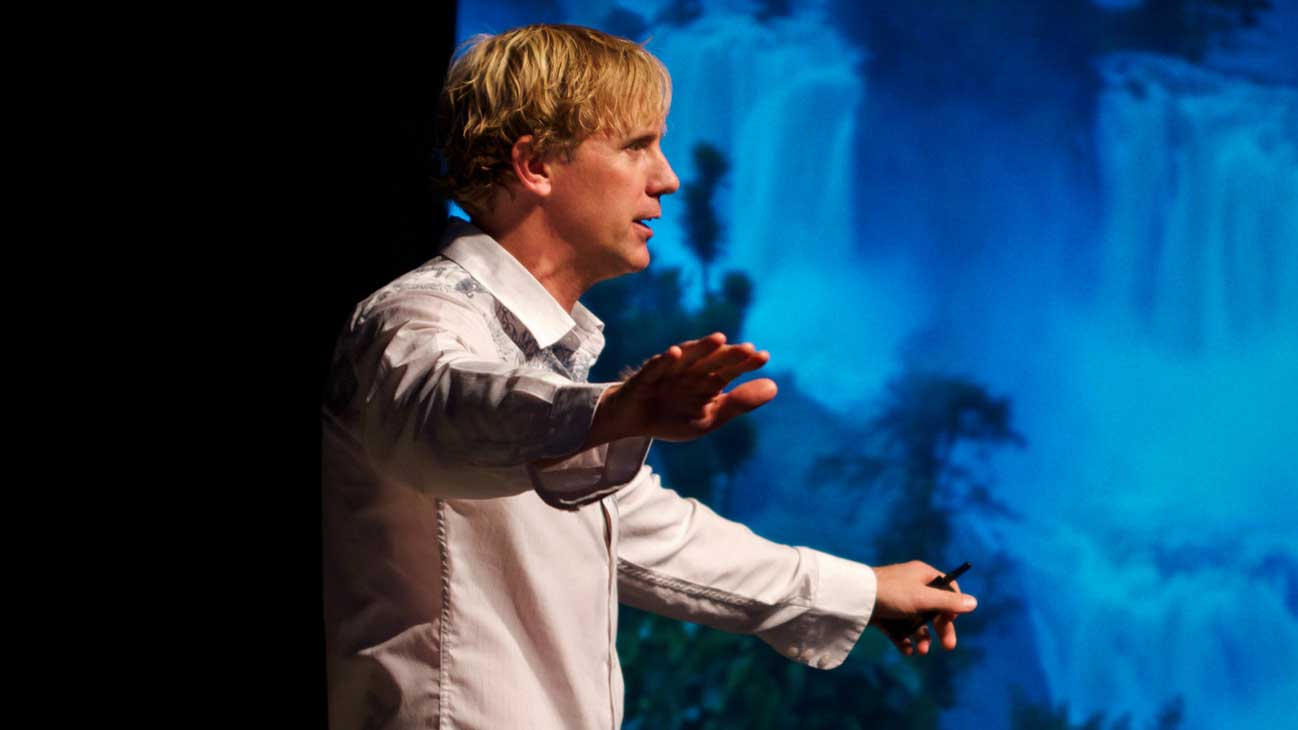Do you feel like you’re drowning in a sea of distraction? North Americans ingest on average 34 GB of information daily — the equivalent of reading 175 newspapers! At work, we check our email 200 times a day and find ourselves being tugged between tasks up to 37 times per hour, a level of multitasking known to be unconscionably inefficient. Plus, we view more advertisements in a single afternoon than our grandparents saw in their entire lifetimes.
The result of this cognitive overload is that instead of advancing primary objectives, hours — if not days and weeks — are wasted. We are constantly racing after digital distractions, responding to loud noises and/or bright lights, leaving us feeling constantly busy and over exhausted.
But, there are a few simple habits we can adapt that can yield enormous results, helping us to quell distraction, sharpen our focus, and returning our attention to the things that matter most, both at work and in life.
As a Canadian raised on a steady diet of science — my father was a University Professor and I studied Engineering Physics — I have long experienced knee-jerk skepticism towards “mindfulness.” But, a recent journey to the Himalayas with my wife and two young sons, where we lived in a Buddhist monastery for six months, revolutionized my understanding of what caring for our mind means.
Today, as science catches up with ancient ways, and repeatedly proves their efficacy, we are standing on the precipice of a mental health revolution. Habits currently being adopted by those on the “sharp end” — professional athletes, international performance artists, Fortune 100 CEOs — will soon enter the mainstream, and become recognized as unquestioningly beneficial.
To get you started, here are three simple habits you can implement today, and feel better for tomorrow. (And yes, all are all founded on evidence-based science!)
1. Go to Sleep
I don’t mean to sound like your mother, but if you want to do great things (who doesn’t?) and achieve all of your potential, you need to sleep for seven hours a night, minimum. If you sleep just fifteen minutes less over the course of your lifetime (an average 6 ¾ hours a night instead of 7), you will increase your risk of heart attack and stroke by 200%!
The science on sleep deprivation is simply overwhelming, and if you are unfamiliar with recent work, I recommend reading this article via The Guardian on why lack of sleep health is actually your worse enemy.
2. Don’t Sleep With Your Phone
The blue-spectrum short-wavelength light emitted by modern screens (phones, tablets, computers) perfectly mirrors the midday sun, and upon entering your eye, tells your brain, “It’s not time to sleep, don’t release the melatonin.” Plenty of studies have shown that reading the same words electronically, versus on paper, can significantly delay the onset of sleep.
It’s also recommended that you shut it off an hour before going to sleep and charge it in another room. Currently, 93% of adult Canadians check their email within five minutes of turning off the bedroom light. As hard as this is to do, I strongly suggest you don’t.
3. Meditate Five Minutes a Day
This may be the most challenging piece of advice to accept, yet it offers the most life-altering benefits. Despite my deeply-ingrained skepticism, I am convinced — both from personal experience and peer-reviewed, journal-published science — that there is simply nothing you can do for five minutes a day that will have a more profound effect on your productivity, performance, and general piece of mind.
Meditating for brief periods has been shown to offer a litany of positive effects, from reducing blood pressure and dangerous cholesterol in the bloodstream, to increasing immune response. Most notably perhaps, it rewires the mind and actually builds physical, measurable gray matter in regions of the brain responsible for empathy, understanding, and compassion, while also reducing nodes associated with stress and anxiety.
If you, like me, are a skeptic, watch this clip of Dan Harris, a correspondent for ABC News, talk about the neuroscience behind meditation via Big Think. And, if you have never mediated before, a good place to start is Headspace.com which offers a free, introductory online course.
In the West, we tend to prioritize everything about our external appearance — we whiten our teeth, get nice haircuts, go to the gym, invest in a good wardrobe. But, we invest almost nothing on what’s hidden inside. Our mind is the filter through which we perceive everything else in the world and just a few simple “brain-hygiene” habits can make an immense difference, not just on our productivity and performance, but on our entire journey through life.

Acclaimed explorer and writer Bruce Kirkby shares a series of simple habits and exercises designed to conquer the challenges facing the modern mind in his keynote Focusing On What Matters: Strengthening Focus and Attention amid an Increasingly Distracted Workplace.
Bruce uses his incredible adventures across the globe to provide real-world, practical lessons on topics such as risk management, change leadership, and productivity, offering simple strategies to help people see lasting success, both personally and professionally.
Interested in learning more about Bruce and what he can bring to your next event? Email us at [email protected].




